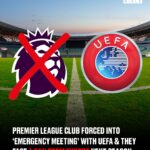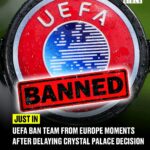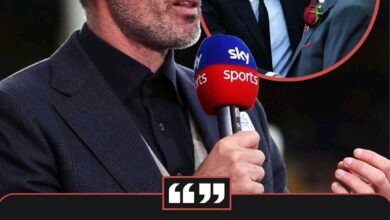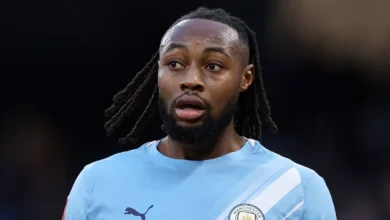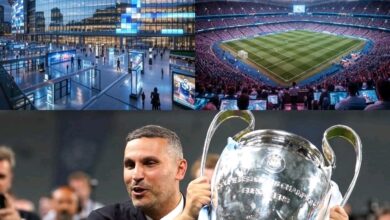EFA has set precedent for banning Crystal Palace from Europe amid claims they could lose Europa League spot
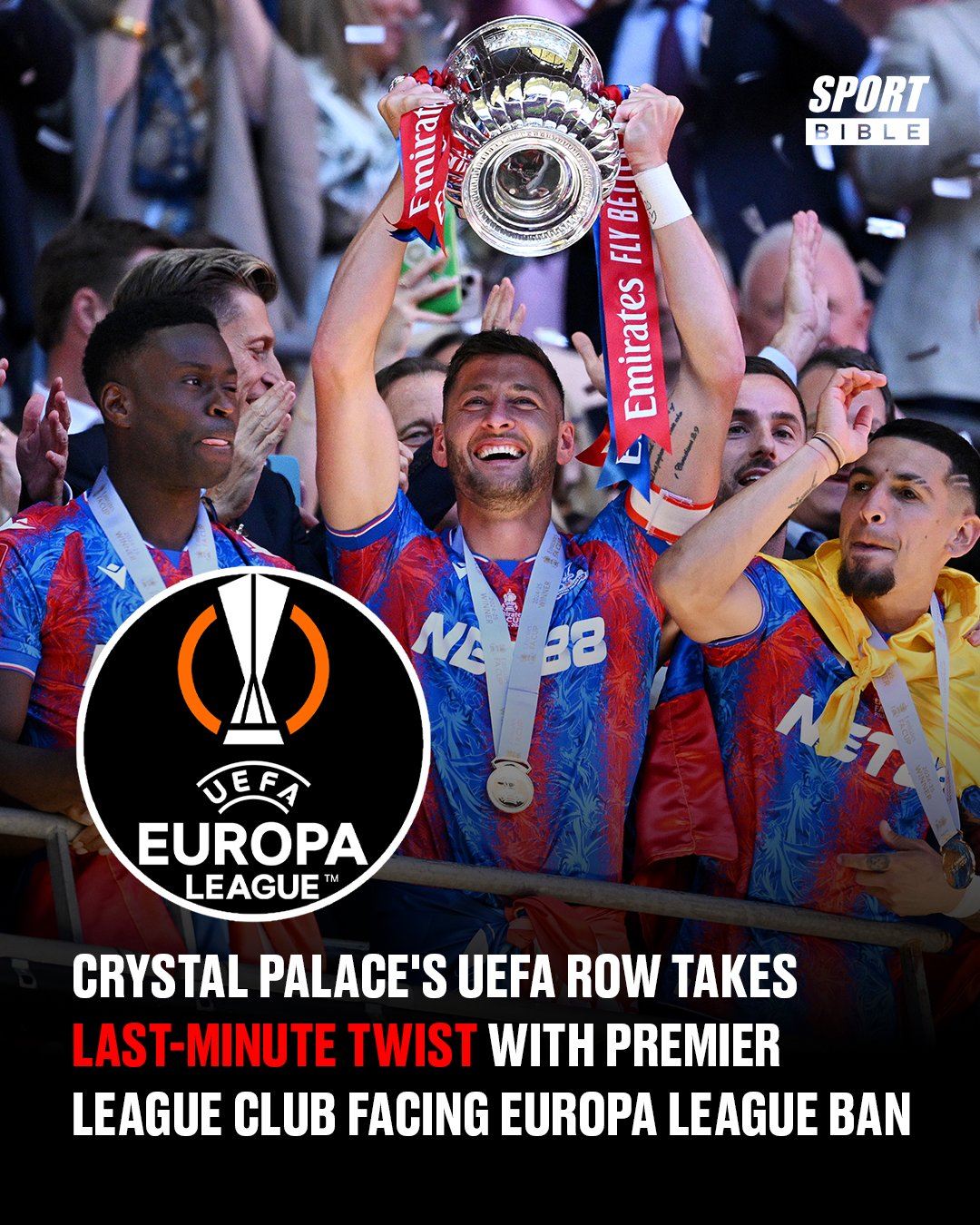
Crystal Palace’s fairy-tale FA Cup triumph in May 2024, which saw them defeat Manchester City 1-0 at Wembley to claim their first major trophy in the club’s history, was supposed to mark the beginning of a new chapter. The victory secured their place in the 2025/26 UEFA Europa League, offering the South London club their first taste of European competition. However, what should have been a celebration of unprecedented success has transformed into a complex legal and regulatory battle that threatens to strip Palace of their hard-earned European qualification.
The Heart of the Controversy: Multi-Club Ownership Rules
The crisis stems from UEFA’s stringent multi-club ownership regulations, designed to preserve the integrity of European competitions. At the center of the controversy is John Textor, the American businessman who holds significant stakes in both Crystal Palace and French Ligue 1 club Olympique Lyonnais. Both clubs have qualified for the same competition – the Europa League – creating a direct conflict with UEFA’s foundational principles.
UEFA’s regulations are unambiguous in their intent to prevent conflicts of interest. The governing body’s rules explicitly state that “no one may simultaneously be involved, either directly or indirectly, in any capacity whatsoever in the management, administration and/or sporting performance of more than one club participating in a UEFA club competition.” This regulation extends beyond mere ownership to encompass any form of control or influence that could compromise competitive integrity.
The regulations further specify that “no individual or legal entity may have control or influence over more than one club participating in a UEFA club competition.” This control or influence is defined through several criteria, including holding a majority of shareholders’ voting rights, having the right to appoint or remove a majority of administrative or management body members, or being a shareholder who alone controls a majority of voting rights through agreements with other shareholders.
The Textor Connection: Eagle Football Holdings and Complex Ownership Structures
John Textor’s involvement in both clubs occurs through his company, Eagle Football Holdings, which owns a majority stake in Lyon and holds a 43 percent stake in Crystal Palace. However, the situation is more nuanced than simple dual ownership. Palace officials argue that Textor’s influence at the Premier League club is limited, pointing to his 25 percent voting rights – a figure that falls below UEFA’s 30 percent threshold for what constitutes “decisive influence” over a club.
This distinction is crucial to Palace’s defense. The club has emphasized that the two organizations operate independently, sharing no staff, facilities, or information. Since Eagle Football’s acquisition of Lyon in 2021, only one transfer has been completed between the two clubs, further supporting their argument for operational independence.
Palace representatives attended a UEFA summit where they presented their case, arguing that Textor’s limited voting power means he cannot unilaterally make decisions affecting the club’s operations. This technical interpretation of the ownership rules represents Palace’s primary line of defense against potential exclusion from European competition.
The Domino Effect: Conference League Complications
The complexity of the situation extends beyond the initial Europa League conflict. If UEFA were to bar Palace from the Europa League, the logical alternative would be relegation to the UEFA Conference League. However, this solution creates an additional problem: David Blitzer, who co-owns Crystal Palace, is also the majority shareholder of Danish club Brøndby, which has qualified for the Conference League.
This second ownership conflict would theoretically prevent Palace from participating in the Conference League as well, creating an unprecedented situation where a club that legitimately qualified for European competition through sporting merit could be entirely excluded from continental football.
The cascading effects of such a decision would significantly impact the European qualification picture for English clubs. If Palace were banned from European competition entirely, Nottingham Forest, currently set to participate in the Conference League, would likely be promoted to the Europa League. Brighton & Hove Albion, who finished eighth in the Premier League, would then take Forest’s place in the Conference League.
Nottingham Forest’s Strategic Intervention
Nottingham Forest has not remained passive observers in this unfolding drama. The club has written directly to UEFA, expressing their concerns about Palace’s participation in the Europa League and presumably advocating for their own promotion to the higher-tier competition. This intervention represents more than mere opportunism; it reflects the significant financial and sporting implications of European competition placement.
Forest’s majority owner, Evangelos Marinakis, has personal experience with multi-club ownership complications. When it appeared that both Forest and his Greek club Olympiakos might qualify for the same European competition, Marinakis proactively restructured the ownership arrangements to avoid regulatory conflicts. This precedent demonstrates the seriousness with which UEFA treats these regulations and the lengths to which club owners must go to ensure compliance.
The potential promotion from Conference League to Europa League represents a substantial upgrade for Forest. The Europa League offers greater prize money, higher-profile opponents, and increased global exposure – factors that could significantly impact the club’s ability to attract talent and generate revenue. The competition tier also influences a club’s coefficient rankings, which affect future European qualification scenarios.
UEFA’s Precedent and Historical Context
UEFA’s approach to multi-club ownership violations has established clear precedents that suggest Palace faces genuine risk. The governing body has consistently prioritized competitive integrity over individual club circumstances, even when the consequences seem harsh.
The case of AC Milan provides relevant context. The Italian giants were banned from European competition for one season due to Financial Fair Play violations, despite their historical significance and the economic impact of their absence. This precedent demonstrates UEFA’s willingness to enforce regulations regardless of a club’s profile or the perceived unfairness of the outcome.
However, the Palace situation involves different regulations and circumstances, potentially allowing for more flexible solutions. UEFA’s multi-club ownership rules, while strict, have been applied with some consideration for structural arrangements that maintain competitive integrity while allowing technical compliance.
The Potential Lifeline: Ownership Restructuring
A significant development that could resolve Palace’s predicament has emerged in the form of potential ownership changes. Reports indicate that a consortium of sport and entertainment executives, including NBA star Jimmy Butler, is preparing an offer exceeding $200 million to purchase Eagle Football’s 43 percent stake in Crystal Palace.
Additionally, the owner of the New York Jets has reportedly made an offer, though it has yet to meet Textor’s valuation expectations. If either transaction proceeds, it could eliminate the ownership conflict that threatens Palace’s European participation.
However, even if a sale agreement is reached, several hurdles remain. Any ownership change must receive approval from both the Premier League and UEFA. The timing is also critical – UEFA needs sufficient assurance that the ownership conflict will be resolved before making final decisions about European competition participation.
The complexity of modern football ownership structures means that even seemingly straightforward sales can involve extended due diligence periods and regulatory approval processes. Palace’s European fate may ultimately depend on the speed and efficiency of these typically lengthy procedures.
UEFA’s Collaborative Approach
Recent reports suggest that UEFA is taking a more collaborative stance with Crystal Palace than initial coverage might have indicated. Sky Sports journalist Kaveh Solhekol reported that Palace is “working closely and collaboratively with UEFA to end the uncertainty about their place in next season’s Europa League.”
This cooperative approach suggests that UEFA recognizes the unique circumstances surrounding Palace’s situation. The governing body reportedly appreciates the “romance” of Palace’s FA Cup victory and first-ever European qualification, factors that align with UEFA’s broader objectives of maintaining competitive balance and celebrating sporting achievement.
UEFA’s apparent sympathy for Palace’s situation reflects broader considerations about the health of domestic competitions. The governing body has consistently emphasized the importance of maintaining competitive balance in national leagues and cup competitions. Excluding a deserving FA Cup winner from European competition could undermine these principles.
The Lyon Factor: Financial Complications
The situation is further complicated by Lyon’s own regulatory challenges with UEFA. The French club has faced scrutiny from UEFA’s Club Financial Control Body (CFCB) over their financial situation, including debts exceeding €500 million. Lyon was initially disqualified from European competition for 2025/26 but had the ban lifted after submitting satisfactory financial statements.
Lyon’s precarious financial position adds another layer of uncertainty to the situation. If Lyon were to face renewed financial sanctions or fail to meet ongoing compliance requirements, it could potentially resolve the multi-club ownership conflict by eliminating one of the participating clubs.
The French club’s situation demonstrates the multiple regulatory frameworks that modern football clubs must navigate. Financial sustainability rules, ownership regulations, and sporting criteria all intersect to create complex compliance requirements that can significantly impact club operations and ambitions.
Legal Implications and Potential Appeals
Industry insiders suggest that the Palace situation could ultimately reach the Court of Arbitration for Sport (CAS), football’s highest legal authority. If UEFA makes a decision that Palace considers unfair or procedurally flawed, the club would have grounds for appeal through CAS.
The involvement of CAS would add significant time and complexity to the resolution process. CAS proceedings can extend for months, potentially leaving Palace’s European participation uncertain well into the 2025/26 season. Such uncertainty would significantly impact the club’s planning, from transfer market activities to commercial arrangements.
Other affected clubs, including Nottingham Forest and Brighton, might also have grounds for legal challenges depending on UEFA’s final decision. If Palace is allowed to participate despite apparent regulatory conflicts, competing clubs could argue that their interests have been unfairly prejudiced.
Broader Implications for Football Governance
The Palace situation highlights broader challenges in modern football governance, particularly regarding multi-club ownership models that have become increasingly common. Investment groups and wealthy individuals often diversify their football interests across multiple clubs and competitions, creating potential regulatory conflicts.
UEFA’s handling of this case will likely establish important precedents for future multi-club ownership situations. The governing body must balance competitive integrity concerns with practical recognition of modern football’s complex ownership structures.
The case also demonstrates the intersection between sporting merit and regulatory compliance. Palace earned their European qualification through legitimate sporting achievement, yet face potential exclusion due to ownership structures that may have been compliant when established but conflict with current competitive circumstances.
Commercial and Sporting Stakes
The financial implications of European participation extend far beyond prize money. Europa League participation provides crucial revenue streams through television rights, sponsorship opportunities, and matchday income. For a club of Palace’s size and ambition, European competition represents a significant step toward establishing themselves among England’s elite clubs.
The sporting benefits are equally important. European competition provides invaluable experience for players and management, potentially accelerating the club’s development and attractiveness to future recruits. The global exposure associated with European football can transform a club’s commercial prospects and international profile.
For Palace’s fans, who witnessed their club’s first major trophy triumph, European competition represents the culmination of years of support and investment. The potential denial of this opportunity due to regulatory technicalities would represent a particularly cruel twist to what should be a celebration of sporting achievement.
Conclusion: An Uncertain Future
As Crystal Palace navigates this complex regulatory challenge, the club’s European future remains uncertain. The situation demonstrates the intricate balance between sporting merit, regulatory compliance, and commercial interests that defines modern football.
UEFA’s final decision will likely set important precedents for how multi-club ownership conflicts are resolved in future cases. Whether Palace ultimately participates in the Europa League may depend on a combination of regulatory interpretation, ownership restructuring, and UEFA’s willingness to find creative solutions that preserve competitive integrity while recognizing legitimate sporting achievement.
The coming weeks will be crucial for Crystal Palace, their fans, and the broader football community watching how UEFA handles this unprecedented situation. The resolution will undoubtedly influence how clubs structure their ownership arrangements and how governing bodies approach the complex intersection of sporting merit and regulatory compliance in an increasingly globalized football landscape.
For now, Palace continues to work collaboratively with UEFA, hoping that their fairy-tale FA Cup victory will not be overshadowed by regulatory complexities that threaten to deny them the European adventure their sporting achievements have earned.
